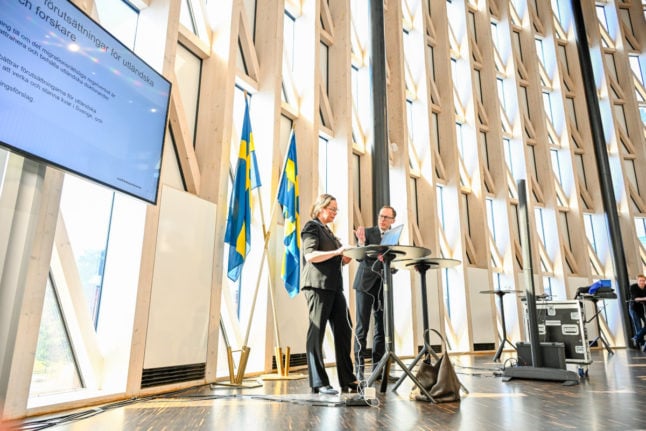Are you marking Ramadan and Eid al-Fitr in Sweden? Ramadan Mubarak! Tell us how you’ll be celebrating in the comments below or by email: [email protected].
When is Ramadan?
Ramadan started on Sunday March 10th, stretching until Monday, April 8th. During this time, most Muslims are expected to fast during daylight hours, starting the day with suhur before dawn and breaking their fast with iftar after sundown.
There are exceptions, for example adults who are ill, pregnant, travelling, elderly, breastfeeding, diabetic or menstruating are not expected to fast, and children are not expected to fast until they reach puberty around 13 or 14.
Ramadan is not just about fasting – it’s also a month for prayer, reflection and community, as well as a time for acts of charity, such as donating money to those in need, and practicing self-discipline.
Are there any age limits?
Although children aren’t expected to fast until they reach puberty, they will sometimes want to try their hand at fasting before they reach this age, whether to emulate older siblings or family members, or just to join in with their religious community.
There are no specific rules in Sweden as to how old a child should be to fast during school hours, but schools are likely to be less positive about a child fasting the younger they are.
Schools may not be completely aware of exactly what Ramadan is and may have a negative view of it, so it may be a good idea to have a dialogue with your child’s school around Ramadan, explaining how your child is planning to take part, especially if you live in a smaller town or other area with a small Muslim population.
If your younger child is only planning on fasting for part of the day and not from sunrise to sunset, it’s worth communicating this to their teachers so everyone is on the same page.
If a child is clearly struggling more than usual during the school day then teachers may discuss this with parents to find a solution. Teachers may also contact parents of children who say they are fasting to confirm that they are doing so with their parents’ permission. This may include asking for a permission slip.
This year, national tests for some subjects in years 3, 6 and 9 fall during Ramadan, so it’s worth taking this into account if you notice your child struggling more than usual during Ramadan.
Can my child’s school stop them from fasting?
Freedom of religion is enshrined in the Swedish constitution, so schools aren’t legally allowed to stop a child from fasting in school hours.
This doesn’t stop some schools and municipalities from issuing rules or recommendations that children shouldn’t, but teachers or other school officials can’t physically force children to eat if they don’t want to.
However, the school timetable will carry on as usual. Children will be expected to attend all lessons and keep up with the curriculum, and schools are likely to contact parents if they don’t.
Similarly, schools can’t force children to fast if they decide they don’t want to, even if it goes against their parents’ wishes.
Will schools make any special concessions for my child during Ramadan?
It depends on your school. In Malmö, schools are advised to offer fasting children an alternative place to be during lunch if possible, so they don’t have to sit in the canteen and watch everyone else eat. In smaller towns or schools this isn’t always possible due to size or staffing constraints.
Schools are unlikely to provide prayer rooms or allow children to leave class to pray, and the expectation is that Ramadan should affect their studies as little as possible.
What about Eid?
The end of Ramadan is marked by Eid al-Fitr, a three or four day celebration celebrating the end of the fast. It’s expected to fall on April 10th this year.
School is compulsory in Sweden from the age of six, and children will be expected to attend school during Eid. However, the standard rules for time off during the semester apply, which means that a child’s parents or guardians can apply for them to have an extra day off in advance.
Applications for planned absences are decided on an individual basis by the school’s principal, who will take into account various factors like the length of the planned absence and how the child is performing in school overall. It’s also a good idea to include information on how your child will catch up on any work missed during their time off.
If your application is denied and you take your child out of school for the day anyway, you could be issued a fine. The exact size of the fine varies: some municipalities calculate it by percentage – 1 percent of parents’ yearly income, for example, while others have a set fine per day.



 Please whitelist us to continue reading.
Please whitelist us to continue reading.
Member comments